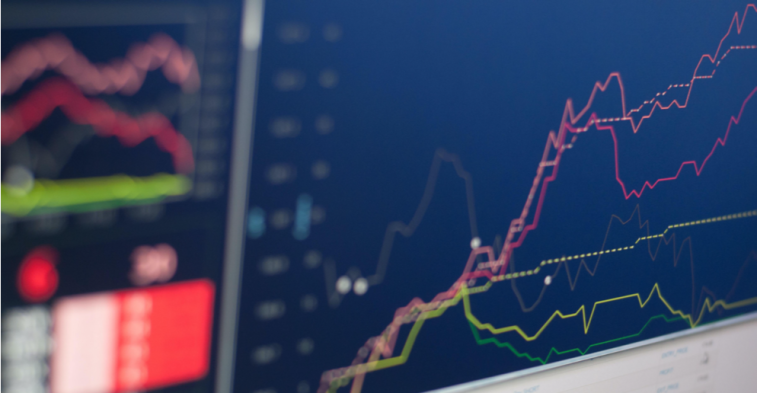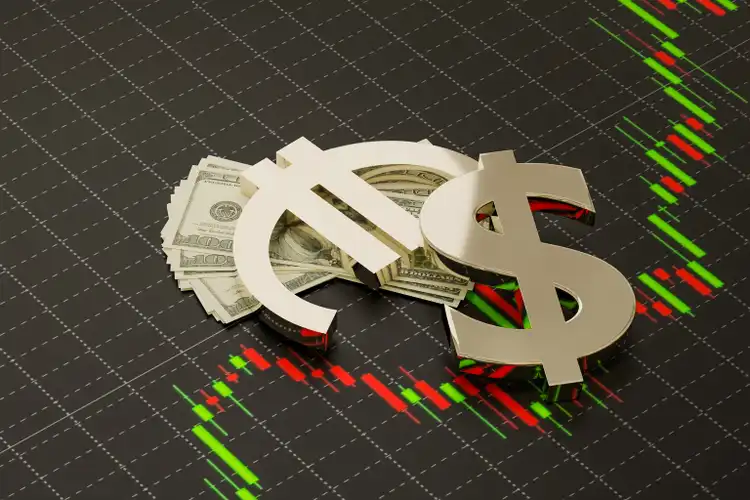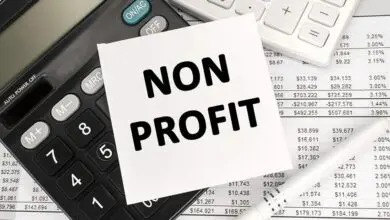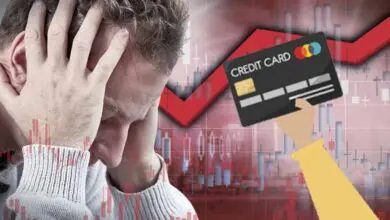What is the Forex Market, and How Profitable Is It?

The Foreign Exchange market is shortly called the Forex market and is currently the biggest and the most traded financial market in the world. By the name of Foreign exchange, we can understand that some exchange is involved in the process. The transaction of changing one currency to another is done for the purpose of trade between two countries and tourism. Many banks, international traders, and firms with big capital and ultra-high net worth individuals are the most common participants in the Forex market, making it the most liquid financial market around the globe, with a $6.6 trillion daily average turnover.
The forex market is unique to other markets as it has no physical geographic location, and trading is done electronically via mobile or computer networks. This market is also called the Over-the-counter market (OTC).
The forex market or fx market refers to an international marketplace where banks, international firms, and investors trade by betting on different currencies. In simpler words, forex trading is done by speculating the price of currency pairs against each other. A country’s economic policies, geopolitics, world events, and international trade relations influence the demand and supply cycle of the forex market.
Different types of forex market:

- Spot forex market: the physical exchange of currency pairs that happen on the spot is known as the spot forex market.
- Forward forex market: a contract to buy or sell a specific amount of currency at a specified price within a time frame is called the forward forex market
- Future forex market: Future forex market is similar to the forward forex market, which is a contract of buying and selling at a set, but unlike the forward forex market, a date is specified, and it is legally binding.
Who is a Forex broker?
Just like any other financial market, the Forex market has a broker. Forex broker acts as an intermediary by performing all the purchase and sale transactions on behalf of the traders. However, the forex market is unique as it enables traders to trade with leverage that magnifies profits and losses incurred while trading.
Why choose Forex trading?

- 24*7 trade on all working days helps reduce the volatility due to time constraints.
- Traded electronically via mobile and computer networks as it lacks a specific geographic location for trading
- High liquidity offers fast buying and selling transactions.
- Trading with leverages offers trading with even small portions of your entire trade value.
- Offers a unique strategy of long buy and short sell of forex assets
Let us understand some basic components of the Forex market.
- Base currency: The first currency appears on the left of the currency pair, which is bought and sold in exchange for the quote currency. Ex: It will cost 1.06 USD to purchase 1 Euro.
- Bid price: The value at which the trader wants to sell the currency is called the bid price. The bid price is given in real-time, and it keeps on varying according to the market trend.
- Quote currency: The currency which is to the right in a currency pair is called the quote currency. Ex: in AUD/USD, USD is the quote currency that needs to be exchanged for the purchase of 1 unit of the base currency.
- Ask price: The ask price is the lowest price of the quote currency that a trader wants to buy or the lowest price that a seller wants to sell the base currency. The ask price keeps changing continuously.
Currency pairs in Forex trading
Fx trading comprises two components called a base currency and a quote currency, which together make one pair. The price of the pair is the price of the quote currency that costs the unit of a base currency, and you get the profit by correctly speculating the price movement of the currency pair.
PIP and Spread in forex trading

A Pip in Forex trading is the movement of the fourth decimal place, and the Japanese Yen is the exception. The movement of the second decimal place is considered a Pip. Spread is the difference between the ask price and the bid price. The less the difference between the ask price and bid price, the cheaper it costs, and vice versa.
What is leverage?
Leverage is the profits you gain by trading large amounts of currencies borrowed from the forex broker and making profits from the difference. Leverage helps the traders maximize their capital, and it magnifies the profits and losses incurred from the trade.
A LOT in forex trading.
Currencies are traded in a bunch to22 standardize forex trades and help increase the liquidity of the forex market. In forex trading is 100,000 units makes up a Standard Lot
Long and short positions in forex trading.
If a trader buys a currency pair expecting it to rise and sells it back in the market is known as a long position. A short position is where a trader sells the currency pair expecting it to fall and purchase it later at a lower price.
Different groups of currency pairs

- Major currency pairs: They are the major driving force of the forex market that accounts for over 80% of the total volume traded in a single day. EUR/USD, GBP/USD, USD/JPY, and USD/CHF are the traditional major currency pairs, and AUD/USD, USD/CAD, and NZD/USD are the commodity pairs. These are the currencies that contribute to the high liquidity of the forex market.
- Cross currency pair or Minors: these currency pairs do not include USD, but when traded, they are first converted into USD and later into the desired currency.
- Exotics: Exotics are the currencies of developing nations paired with one major currency. As they are always in demand with less liquidity, they are subject to high risk and high volatility.
How to conduct analysis in forex trading?
The fundamental analysis is done based on world events and by analyzing the economic policies of a nation that affects its currency. Investors prefer strong economies to grow their businesses since the currencies of those countries will be in demand. We must keep our eyes and ears open to know what’s happening around the world to predict the forex market trend. The central banks and government’s financial practices will strongly influence the forex market as they are the deciding factors of a currency’s demand. As discussed above, world events, geopolitics, and international trade relations should be considered by traders for fundamental analysis of the forex market.
Forex trading does not have an international governing body. Instead, it is monitored by the domestic or a nation’s securities and exchange boards. For example, Australian forex trade is governed by the Australian Securities and Investments Commissions (ASIC).




